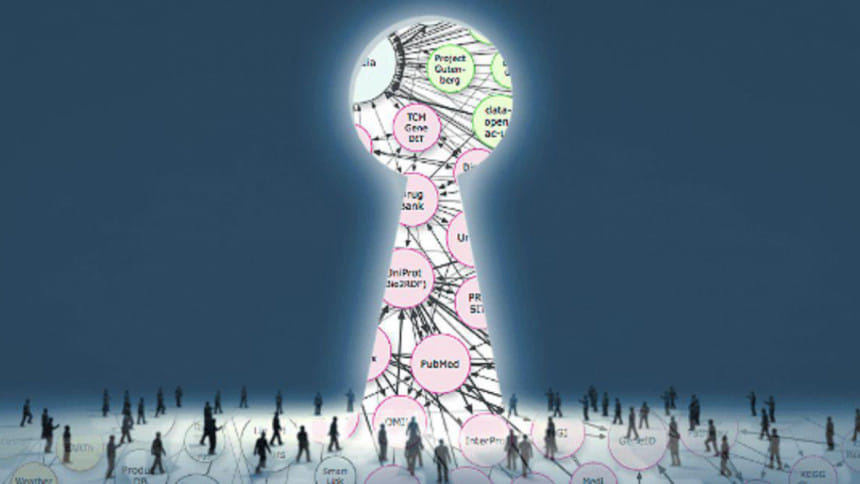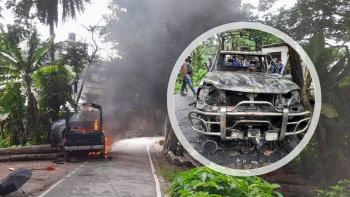Engaging citizens to use the RTI law

Those who read this column regularly are aware of its two recurring themes. First, that the Right to Information (RTI) Act is important not simply because it enables citizens to obtain information from public authorities which they may "need to know" for personal reasons, but, more importantly, because it empowers them with a "right to access" information that sheds light on the way public offices perform their duties and spend public money. By resorting to RTI, citizens convey to public servants that they are keeping an eye on them.
Second, in order to achieve the larger goals of systemic change in governance through RTI, knowledgeable and socially-aware sections of society must be engaged in the process. While ordinary citizens can help keep the RTI machine working through regular interaction with public officials on relatively mundane and private matters, using the law for the greater public good, such as unearthing corruption and exposing misuse of power for private gain, requires better understanding of the intricacies of the governing process and the tactical use of the law. These are normally not something ordinary citizens excel at.
Since the inception of RTI in Bangladesh 10 years ago, ordinary citizens, particularly from underprivileged sections, have successfully used the law to obtain many of their rightful entitlements from government safety-net programmes. The limited use of the law in the country today still revolves around the personal concerns of ordinary individuals.
While this is empowering and important, few in the country appreciate the ability of the law to force disclosures about serious malfeasance by public officials through abuse of power and authority, thereby leading to public outcry.
Ironically, one of the very first RTI interventions in the country led to the disclosure of serious illegality in the construction of the famous BGMEA building, in the heart of Dhaka city, on the Hatirjheel lake. It eventually led to the Supreme Court order to demolish the building. This was possible only because an environmentally-concerned social activist had used the law to obtain the facts. However, since then, very few citizens have used the law for such public good.
One reason for this may be that people simply do not know about it. So, we will cite a few good examples of RTI use from neighbouring India. They show that whatever difficulties citizens may face from obdurate authorities in making use of the law, its strategic use by knowledgeable and determined citizens can expose serious irregularities in governance and pave the way for change.
Amid the wide variety of RTI interventions in India, two broad categories emerge. One shows non-transparent, muddled or shoddy, ill-motivated decision-making that causes public distress, and where authorities hide facts to hoodwink the public. The other reveals serious misdeeds by public officials, including large-scale corruption and abuse of power and authority.
Readers may recall the unprecedented turmoil in India following the sudden announcement by the Indian government on November 9, 2016 ending the legal tender nature of high-value Indian currency notes, which accounted for 86 percent of the total cash in circulation. It rocked the country so hard that the aftereffects still reverberate. More than a hundred people died waiting in serpentine queues to deposit the demonetised notes and at least three bankers succumbed to their fatigue counting old and new cash. Most people thought the price paid was too high, compared to the expected benefits of demonetisation that the government listed in its gazette notification.
One RTI request in this debacle was for the minutes of a meeting involving senior officials of the Reserve Bank of India (RBI), held to prepare its advice to the government on the matter. RBI sat on the request for a long time before being compelled by the Central Information Commission, and later by the Supreme Court, to disclose the requested information. The disclosure finally revealed that RBI had expressed clear doubts on the advisability of the decision and the fundamental bases of the government decision. India's principal opposition party, the Indian National Congress, vowed to investigate abnormal flows of funds from foreign tax havens during the demonetisation period.
Our second story is about "electoral bonds," introduced by the Indian government two years ago as an election financing scheme. They comprised of interest-free bearer instruments that are available for purchase from the State Bank of India, allowing individuals and domestic companies to present them to political parties of their choice for their use for election purposes. Buyers of the bonds are required to submit their particulars at the time of buying, but the beneficiary political party is not required to reveal the identity of the entity that has given it the bond(s).
An RTI activist asked the Department of Economic Affairs (DEA) for the total number of bond-buyers who had requested that their identities be kept confidential. When no complete response was forthcoming, the activist appealed to the Central Information Commission of India. The latter has, earlier this month, issued "show cause" notices to the DEA, department of financial services, department of revenue and the Election Commission, asking why maximum penalty should not be imposed on them for giving incomplete, misleading and vague responses. The matter is likely to give rise to serious embarrassment to the government, if and when the information is released. One opposition politician has remarked: "The electoral bond scheme of the Narendra Modi government is a modus operandi to receive thousands of crores from big business houses through secret donations."
Our final tale has to do with the independence of the judiciary and adherence to RTI. In response to an RTI request seeking directives of the Supreme Court of India to the Centre and states to appoint Information Commissioners (ICs) without further delay, a bench of the apex Court, which included the new Chief Justice of India, SA Bobde, and two other judges, asked the Centre and states to fill long-standing vacancies of Information Commissioners within three months. It also asked the Centre to upload on the official website names of members of the Search Committee for selection of ICs of the Central Information Commission within two weeks. If only we had similar watchdogs for the law in Bangladesh!
In a major ruling in November 2019, the Supreme Court ruled that the office of the chief justice of India will come under the ambit of the Right to Information Act. Reading out the verdict, Justice Sanjiv Khanna said: "Independence and accountability go hand in hand and that independence of the judiciary cannot be ensured only by denying information." The ruling further added that the independence of the judiciary was not a privilege but a responsibility cast upon the office.
Let the examples here convince our disengaged compatriots that RTI does indeed have teeth and that through its strategic use, the law can be an effective machinery for political accountability and reform. The most telling impacts of RTI in India have been made possible by a few knowledgeable, diehard RTI enthusiasts. It is time our citizens woke up to the tremendous prospects of the law in Bangladesh.
Shamsul Bari and Ruhi Naz are Chairman and Project Coordinator (RTI section) respectively of Research Initiatives, Bangladesh (RIB).
Email: [email protected]

 For all latest news, follow The Daily Star's Google News channel.
For all latest news, follow The Daily Star's Google News channel. 



Comments